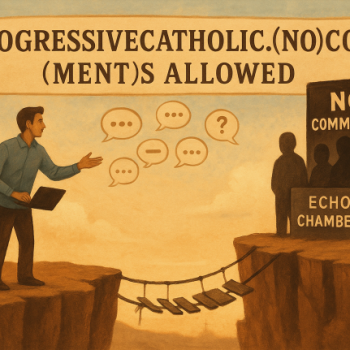Respect and gratitude start in the bathroom
A bad dye job is an opportunity to attain enlightenment. My bathroom is a sacred space.
Visualization can make the politically induced screaming go away.
And, as I had suspected all along, shoes are sacred.
These are a few of the things I gleaned from the deep well of Buddhist wisdom this week.
It started with a little toilet ghasso.
Stop sniggering, children. Ghasso is a Japanese Buddhist term for the act of putting the palms of your hands together in a sign of respect and gratitude.
It’s a gesture one might make when meeting another person, or bowing before an altar. Or, as the Rev. Koyo Kubose, a Buddhist priest I know in Chicago, explains, when one encounters the, um, porcelain god.
“I sure am thankful my inner plumbing is working,” Kubose, director of the Kubose Dharma Legacy in Skokie, writes in his new book, Bright Dawn: Discovering Your Everyday Spirituality. “Giving thanks before eating is a common practice, but we should also be thankful for the important excretion process. Elimination of toxic waste products resulting from digestion of food is crucial to maintaining life.”
In other words, and to paraphrase, holy shit.
After saying, “To me, BM can also stand for ‘Buddha Movement,'” Kubose waxes eloquent for a couple of pages on that particular scatological term, reclaiming its Buddhist intent, which has something to do with the transitory nature of the body.
“The privacy of a bathroom is a great place for quiet reflection,” Kubose continues. “I think about how my morning hygiene routine has become part of a daily spiritual practice. I like that. The bathroom’s cozy privacy brings out intimate conversations that one can have with oneself.
“The bathroom can be a very powerful sacred space.”
Kubose’s slim volume recounts his early-morning runs along Chicago’s lakefront in which every action he takes, from bed to sidewalk, is a meditation.
Which is how I came to have a deeper, transcendent appreciation for my kid leather Mary Janes — and my powder room.
“When you take off your shoes, thank them. Your shoes protected your feet all day, never complaining,” Kubose says, quoting a phrase that his father, the late Rev. Gyomay Kubose, founder of the Buddhist Temple of Chicago, was fond of repeating: “Gratitude for such little things shows how intimate relationships are possible through mindful awareness.”
Kubose writes about a fellow runner who periodically holds a “gratitude service” for his old sneakers before giving them away. Such rituals for objects used in daily living are fairly commonplace in the East.
“I pause to bend down and pat my shoes. I see details in the designs on my shoes as if for the first time,” he writes. “Being grateful to one’s shoes or to some other particular thing always goes beyond whatever one is being thankful for.”
Thank you, ever-loyal Mary Janes. Even when you give me blisters, it’s not your fault. I should have worn socks.
Hmm. I do feel strangely more centered.
Very much not like how I was feeling last week when, inexplicably, the folks at my longtime salon ended up dying my hair an Elvira-esque shade of burnt aubergine instead of the sassy Julianne Moore-shiny auburn that had been intended.
I was traumatized. I cried and took to my bed, where I dreamt about my hair falling out.
Not very Zen, I know. A more enlightened being would have embraced the ephemeral nature of the body, grabbed a hat, and moved on.
But I kept hearing that alleged Bible verse, “A woman’s hair is her crown of glory” — which actually is a bastardized version of a New Testament verse that says, “If a woman has long hair, it is her glory, for her hair is given to her for a covering” — repeated like a mantra in my mind.
So after lying low for a few days, divorcing my longtime stylists and praying for divine intervention, I found a nice new salon that fixed my hair, returning it to a mostly natural, sort-of-auburn state.
But I might still be sporting that darker, goth look had I picked up another new Buddhist book a few days earlier.
A useful, smart-alecky tome called Just Add Buddha! Quick Buddhist Solutions for Hellish Bosses, Traffic Jams, Stubborn Spouses, & Other Annoyances of Everyday Life, by Franz Metcalf, a Buddhist scholar from California who earned his doctorate at the University of Chicago.
I could have turned to the two essays titled, “When things don’t go according to plan,” and, “You think this is bad? Just wait!” and been enlightened by the words of the great Tibetan teacher Lama Zopa Rinpoche, who said, “This problem is like a great pleasure to me. There are much heavier problems to come,” and the lesser-known Buddhist-ish savant, William Shakespeare, who wrote, “Nothing of him that doth fade but doth suffer a sea-change into something rich and strange.”
And brunette.
With the help of Just Add Buddha!, I also learned how Buddhist wisdom may even mitigate my election-year angst.
Apparently, visualizing President Bush as a bodhisattva may decrease the frequency of screaming at the television.
In the Buddhist tradition, bodhisattvas are persons of profound compassion who, having already attained enlightenment, postpone their entrance into Nirvana in order to help others who haven’t gotten there yet.
For those non-Buddhists, think saint or tzaddik, sage or holy person.
Much like Bush, right? Or Clinton, or Gore, or McCain; Kerry, Rice, Cheney or Rumsfeld?
Yes, it’s a stretch. Nevertheless, the exercise of, for example, trying to picture the president as an enlightened being rather than the village idiot must be helpful in approximating something like compassion for the man.
Like most spiritual practices, it can be difficult.
“This trick sometimes doesn’t work,” Metcalf writes. “Not mentioning any names, of course, but that bushy smirk is pretty darn hard to imagine on a bodhisattva. I suspect, like me, you’ll sometimes continue to feel anger, and you’ll feel it’s caused by this or that horrible politician and his or her horrible policies.”
But if you squint just right, and breathe deeply, maybe, just maybe, you can silence those inner — and in my case, outer — voices that screech nasty things about lies and deceptions and young lives being lost and arrogance and greed, as you watch the nightly news.
Or, as Metcalf suggests, you can just turn the TV off.
“All right then, ready for the second deep and profound Buddhist practice?” he writes. “Here it is: change the channel, mute the sound. . . . Boom, problem solved.”
Thank you, venerable remote control, for your service.
Copyright © The Sun-Times Company
All rights reserved. This material may not be published, broadcast, rewritten, or redistributed.















